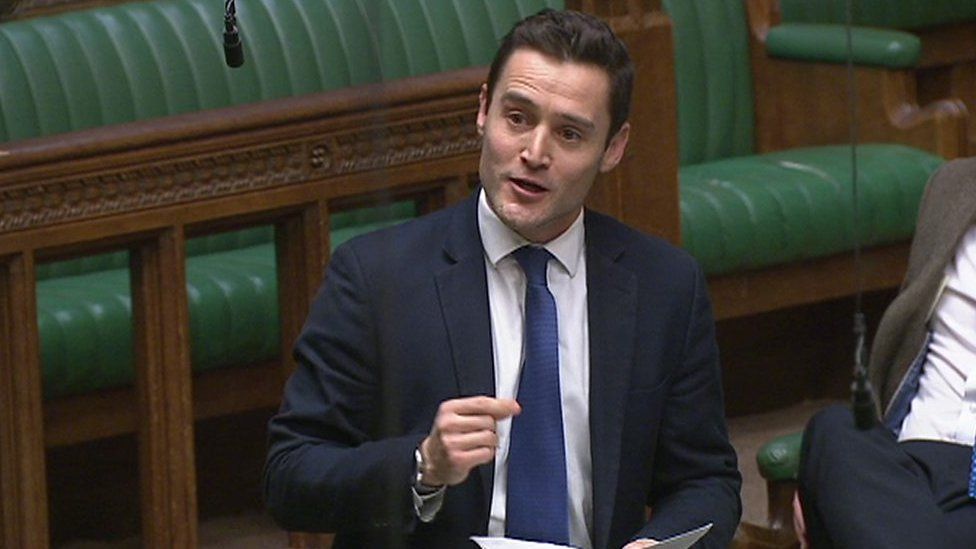ARTICLE AD BOX
 Image source, HoC
Image source, HoC
By Kate Whannel
Political reporter
A Tory MP has said he is one of the men to have been sent unsolicited explicit messages in a suspected honeytrap plot targeting Westminster.
Bosworth MP Luke Evans said he contacted the police after becoming "a victim of cyber-flashing and malicious communication".
It has been reported that up to 13 men have received suspicious messages, raising security concerns.
The men are thought to include a government minister and advisers.
Some had been sent naked images, and two MPs are reported to have responded by sending images of themselves.
It comes after fellow Conservative MP William Wragg made an apology, having admitted giving other MPs' personal phone numbers to a man on a dating app.
The Met Police has confirmed it is "carrying out an investigation following reports that a number of unsolicited messages were sent to MPs over recent months".
Earlier this week, Leicestershire Police said it was "investigating a report of malicious communications" that had been made to them last month.
Describing his own experience in a video on Facebook, Mr Evans said: "A month ago I was a victim of cyber-flashing and malicious communications."
He said the first set of messages came when he was with his wife, and received "a one-time open photo on WhatsApp of an explicit image of a naked lady".
Ten days later he received a further set of messages and was able "to record conversations and catch photos and videos of the messages", he added.
Mr Evans said he reported the messages to the police as well as the chief whip in Parliament.
"I wanted it to be private because there is an ongoing police investigation," he said, but added that in recent days he had been "hounded by journalists".
"I'm just pleased I blew the whistle, reported it to the authorities and it's now being looked into."
Conservative MP William Wragg said he was sorry for sharing MPs' phone numbers with someone on a dating app
On Thursday, Mr Wragg admitted having given MPs' numbers to someone he met on dating site Grindr.
The Hazel Grove MP told the Times he had been "scared" because the individual had "compromising things on me" and "wouldn't leave me alone".
Mr Wragg - who is stepping down at the next election - said he was "mortified", adding: "I'm so sorry that my weakness has caused other people hurt."
The BBC has spoken to two people in political circles who have been targeted by unwanted messages.
One ex-MP, who is gay, said he received messages from someone calling themselves "Charlie" who claimed, incorrectly, that he had previously worked for Mr Wragg.
The former MP explained he was in a relationship, but further flirtatious messages followed. After "Charlie" sent an explicit image, the former MP blocked him.
Someone who works for an MP told the BBC they received a message last autumn from someone calling themselves "Abi".
The staffer said this person claimed to know him from work, and mentioned an event he had attended.
But he grew suspicious when he asked who they were, and they replied with information that was "clearly wrong".
He said he ignored them, but they continued to message him. He told the BBC he learned five or six months later that someone else had received messages from a person with the same number and similar picture.
The MP's staff member said he would be "very surprised" if Mr Wragg had his number, and he cannot recall ever having met him.
A House of Commons spokesperson said it took security "extremely seriously" and provided MPs and staff with "tailored advice" to make them aware of risks online.
"We are encouraging anyone affected who has concerns to contact the Parliamentary Security Department," they added.

 1 year ago
28
1 year ago
28








 English (US) ·
English (US) ·